Mbedza’s Environment programmes
We recently returned from April 2025’s visit to Malawi and we were encouraged seeing the progress in our environment programmes.
Mbedza planted 35,000 trees in 2023 to 2024 and 35,000 in 2024 to 2025. An example of this was a newly established woodlot at Kagwa village. The woodlot was in excellent condition, the ground was clear of weeds and the survival rate of the trees extremely high. Typical of these communities we were greeted with song.
The community took us around some of the trees planted around their homes and then we proceeded to the wood lot.
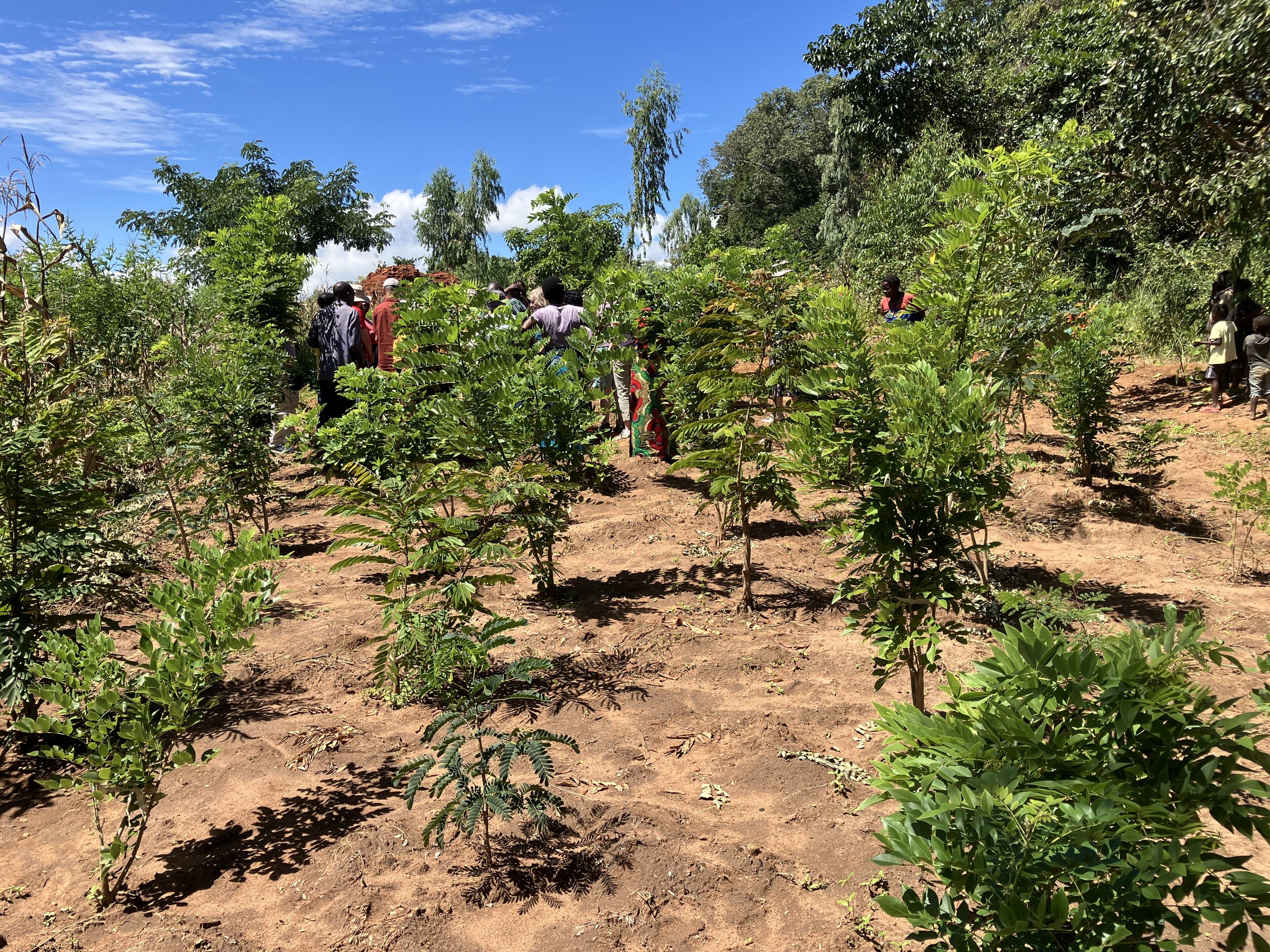
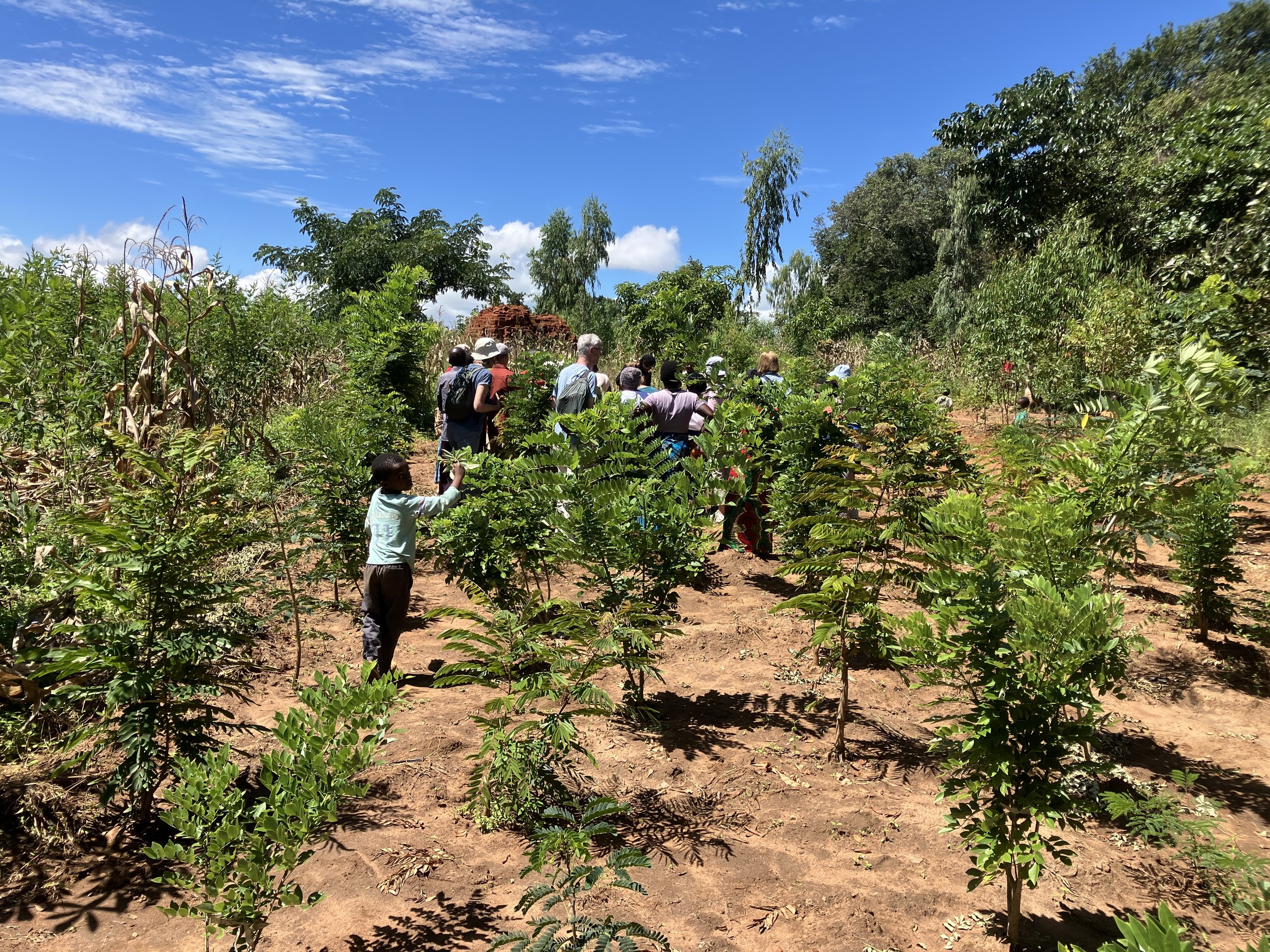
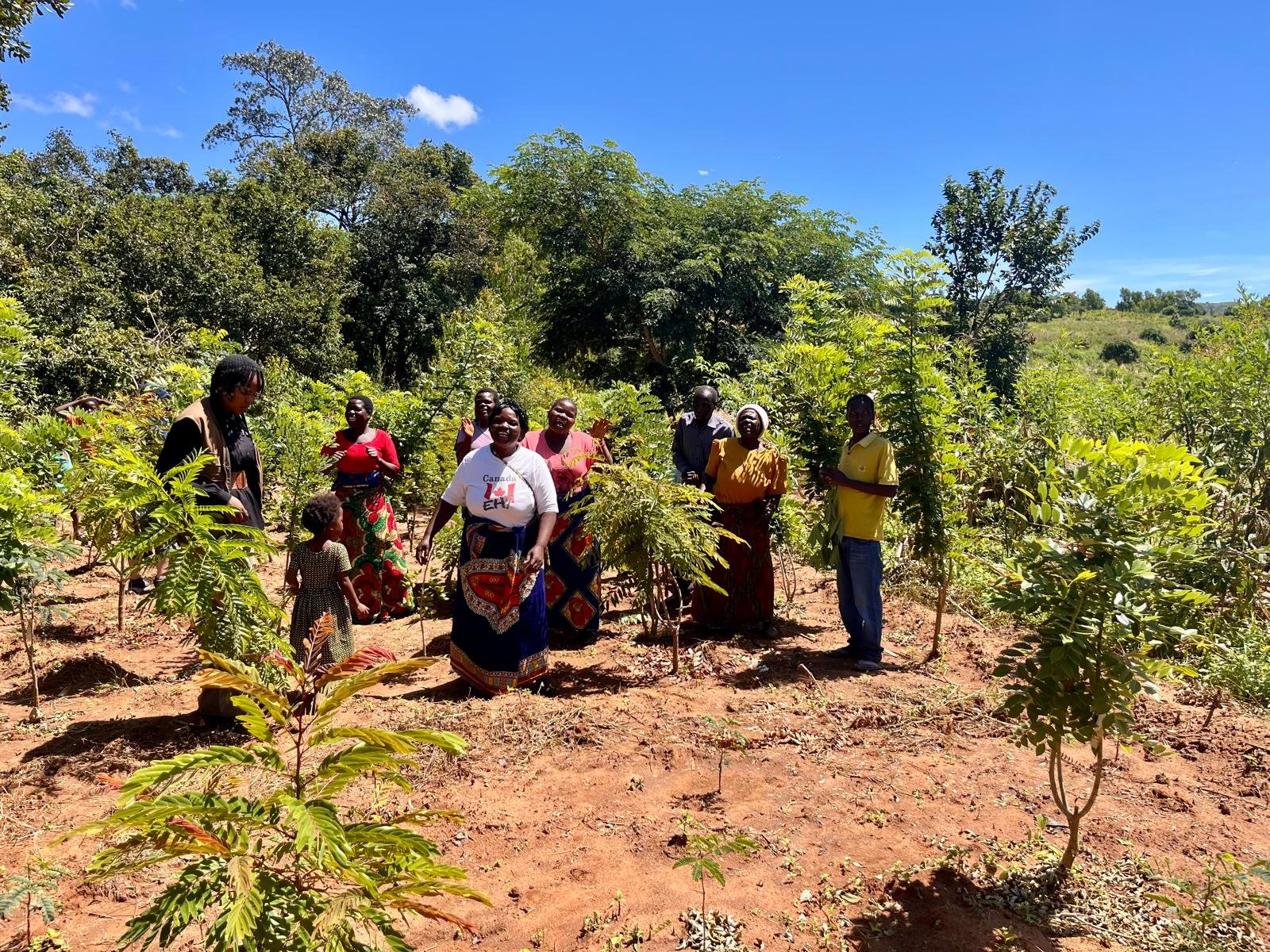
This woodlot was planted in January 2024 and the trees had achieved a good height in just over a year. We followed this visit at Kagwa village by visiting Mbewe. Mbewe has several tree planting phases and is one of the communities that has received training in tree nurseries. These blue gum trees were planted in January 2022 and sometime this year the village development committee will be trainined in sustainable wood cropping.
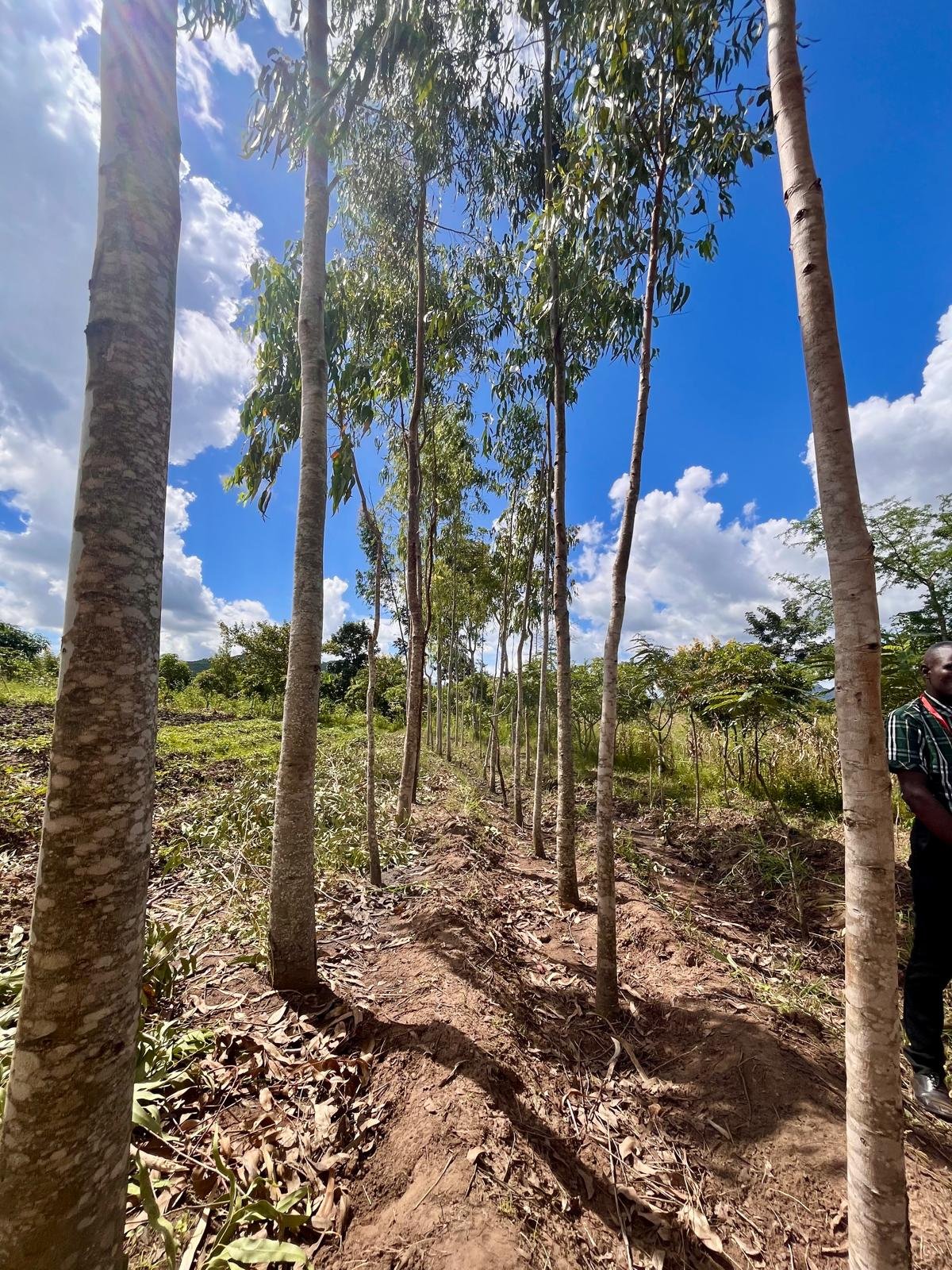
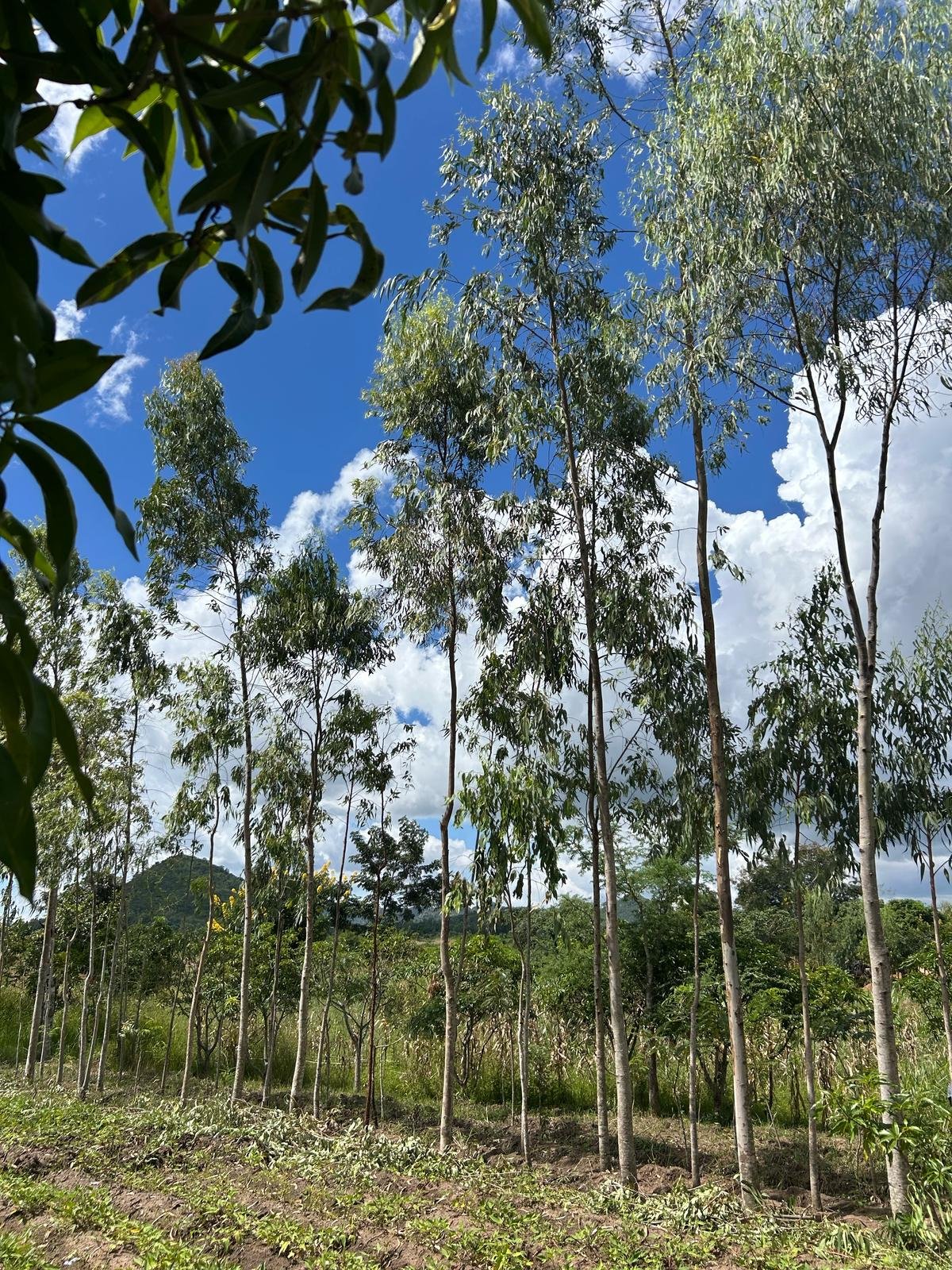

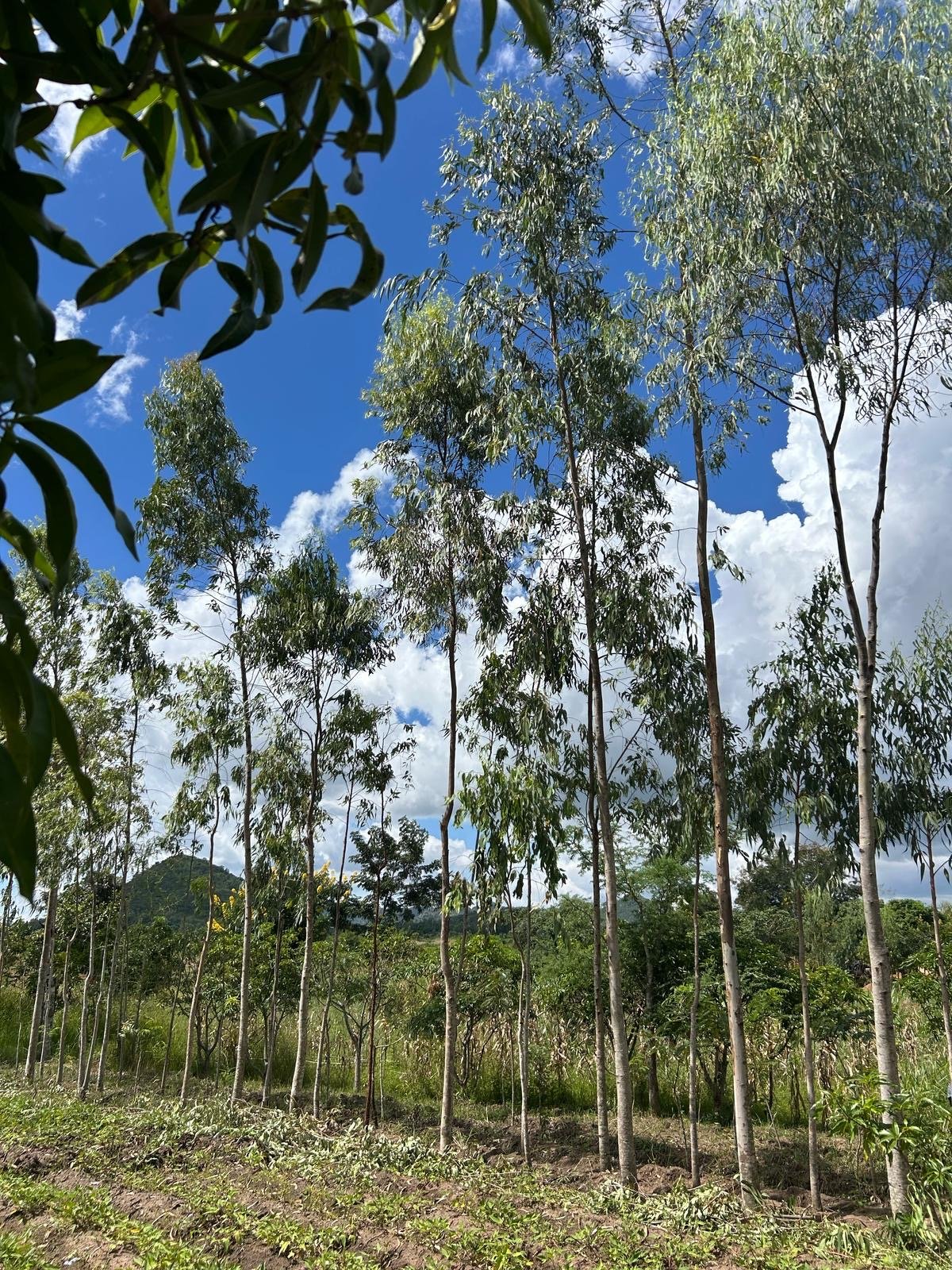
A new aspect of our Environment Programme in 2024 was the introduction of the Tiyeni method. This method of growing maize and other crops provides an alternative to traditional practice which relies on expensive fertiliser. Tiyeni digs deeper and uses compost manure. This method retains soil moisture more efectively and the results are impressive. Although it is a lot of work in year 1 the next three to four years require no digging.
After 6 weeks you can see the Tiyeni crop on the left already flourishing, the traditional method is on the right. Tiyeni uses no fertiliser! These photos were taken in January 2025 and three months later the crop is ready for harvest.
Many farmers are seeing the results of this new method and are are crying out for change. Harvests in 2023, 2024 and 2025 have not delivered the food needs for most families and the hungry seasons have been challenging. Mbedza trained 20 farmers in this method in 2024 and we hope to increase that number significantly in 2025 - if you can support us to do that our communities would be deeply grateful.





